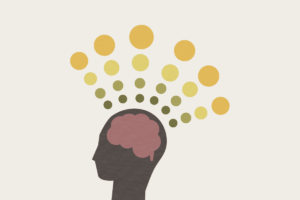Once you allow yourself to try and find yourself in a position of preparation,  you must consider how to appropriately arm yourself with the tools to succeed—this includes the use of any previous experience and an interpretation of the position or opportunity you are about to approach. This preparation might range from general practice to insightful thinking about the reason you are pursuing this position and how it will help you grow; it would prove beneficial to think reflectively upon your goal.
you must consider how to appropriately arm yourself with the tools to succeed—this includes the use of any previous experience and an interpretation of the position or opportunity you are about to approach. This preparation might range from general practice to insightful thinking about the reason you are pursuing this position and how it will help you grow; it would prove beneficial to think reflectively upon your goal.
For example, you might be applying to schools thinking about how to best prepare yourself for the environment you are about to enter. This might mean mental preparation for a new social environment or preparation for a less dictated environment—this means that you control your schedule and how you execute self-determined deadlines—much like the transition into college, which has more options than high school. Preparing yourself for a situation where you will have more liberty, will allow you to avoid large amounts of unreasonable procrastination and bad work habit, which might cause stress and stunt personal growth.
Beyond preparation for the environment, it would also prove beneficial to  reflect on what you want to achieve at this facility or opportunity. Once you reflect on what you want to pursue and achieve at the school, you would be able to appropriately prepare for that specific goal—perhaps this would entail you to practice an instrument if you are pursuing music or to familiarize yourself with your future discipline by pre-studying the content you will learn at the facility. Generally, preparation is an excellent step towards a healthy approach to school, that will enable you to take full advantage of the resources offered by the facility.
reflect on what you want to achieve at this facility or opportunity. Once you reflect on what you want to pursue and achieve at the school, you would be able to appropriately prepare for that specific goal—perhaps this would entail you to practice an instrument if you are pursuing music or to familiarize yourself with your future discipline by pre-studying the content you will learn at the facility. Generally, preparation is an excellent step towards a healthy approach to school, that will enable you to take full advantage of the resources offered by the facility.
Past preparation for something like school, you may find yourself worrying more about career preparation. Maintaining a system of preparation similar to school would be helpful, but you must be even more careful in preparing for the pursuit of a career—or rather, most people are extremely careful in their preparation for the future because the future is an intimidating idea. Individuals tend to overthink the process of preparation and think about the less effective areas to focus their time on. This might mean preparing skill wise for a career or job position, but failing to properly network and create connections that would benefit you throughout your preparation for the career—or even failing to consider the personal requirements that a specific company in the field might have. Improper preparation, which result from thinking about the least efficient aspects to improve and think about when preparing, is a step backwards.
On a more personal level of reflection, considering the personal requirements of a company is important. When you apply to a company, do not oversell yourself. Think towards how you can benefit your peers and how you can improve. Realize that you are human, and the organization about to accept you is aware of that; ponder upon your flaws, because you should be prepared for them to ask. The fact that you remain aware of your own weaknesses and are willing to describe them without encouragement will leave the organization will little room for criticism you are already aware of and augment their perspective on you, as someone who is well aware of their environment and is dependable. Of course, one must remember to not undersell themselves as well; an individual must be able to find a balance when describing themselves.
One excellent example of preparation for success in Reflective Writing excerpt on Career Planning, specifically the pre-interview process. The Career Planning section from Reflective Writing, written by Kate Williams, pushing one to focus efficiently when preparing for a career. For example, you might think about “what you can do and who you are”, as compared to “what you know and how you know it”.
In Reflective Writing, Kate Williams discusses thinking about what an  employer will be looking for through the general job requirement and the personal requirement, pushing one to think about what they can do, what they want, and who they are—this process is labeled “groundwork”; it proves beneficial to take advantage of one’s situation and reflect upon themselves. In order to proceed, an individual should map out their life and then reflect on how they have learned and developed both physically and mentally from these previous experiences.
employer will be looking for through the general job requirement and the personal requirement, pushing one to think about what they can do, what they want, and who they are—this process is labeled “groundwork”; it proves beneficial to take advantage of one’s situation and reflect upon themselves. In order to proceed, an individual should map out their life and then reflect on how they have learned and developed both physically and mentally from these previous experiences.
Reflective Writing also suggest one to tell the employer if they “can do it”, referring to the job description. I believe that telling the employer your ability to complete the task they require is essential, but one should be aware of their weaknesses which will ultimately emphasize their strengths and ability to learn, through perhaps a past experience where they have overcome this weakness—of course, prioritization of the given questions in an application is important.
These moments of reflection will empower and allow you to fully prepare you for a career and a career interview—this is preparation that will be evident to the employer, pushing their opinion of you. And beyond that, you will take the experience on with you as you proceed through life; even if you do not succeed in obtaining the position you desire, the preparation you did, which focus on the most efficient reflection, allowed you to grow; the process you completed and committed to allowed you to develop. You will be able to take these skills and ability of self-awareness, of all your: strengths, weakness, and overall ability, with you as part of an arsenal for preparation as you pursue future goals.
Bibliography
Jr., Robert D. Bretz, et al. “Recruiter Perceptions of Applicant Fit: Implications for Individual Career Preparation and Job Search Behavior.” Journal of Vocational Behavior, vol. 43, no. 3, 1993, pp. 310–327., doi:10.1006/jvbe.1993.1050.
Li, Ian, et al. “Understanding My Data, Myself.” Proceedings of the 13th International Conference on Ubiquitous Computing – UbiComp ’11, 2011, doi:10.1145/2030112.2030166.
Williams, Kate, et al. Reflective Writing. Palgrave Macmillan, 2012.
